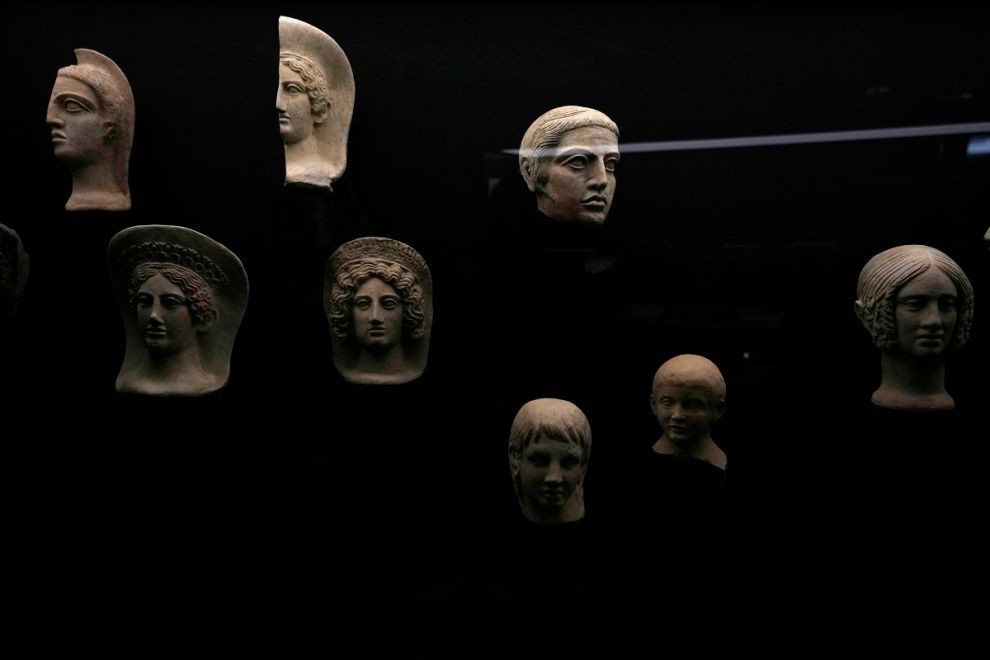Heliogabalus was a special case of an emperor in the eyes of historians, both contemporaries and later, and this was apparently due in large part to their homophobic prejudices. Today, he is considered the first recorded Roman official with gender dysphoria, something that in those years could neither be understood nor accepted.
Precisely this particularity of his, reduced him in the eyes of the rest, as a result of which many rumors were circulated and even more harsh stories were recorded about him, facts that today no one can say with certainty if they are true or false. Be that as it may, the official history has treated him particularly harshly, as we will see in some of the events that follow:
Grandma Iulia
Born - most likely - Marcus Aurelius Antoninus Augustus before adopting the name Heliogavalus from the sun god “Elagabal”, his astonishingly quick "promotion" from high priest to emperor of the Roman Empire came after the death of his cousin, Emperor Caracalla. It was his grandmother, Iulia Maisa, who instigated his early rise to power, when she managed to take advantage of the volatile climate of civil unrest that had been created.
On May 16, 218 AD, therefore, the Third Legion at Rafana will swear allegiance to him and Heliogavalos at the age of only 14 will be crowned emperor.

Religious controversy
From his first days on the throne, Heliogavalos embarked on a career best remembered for its sex scandals and religious controversies. His family's religious beliefs were the first indications of the controversial reign that was to follow. More specifically, his grandmother hung a painting of the two of them above the statue of the goddess Victoria in the Senate House, forcing senators to make offers to the teenage emperor.
In order to become the high priest of their own new religion, prominent in which was the sun god, Baal, whom he had brought from the far east, Heliogabalus circumcised himself and forced the senators to witness a strange display where they all danced around a altar of this god, accompanied by drums and cymbals.
Despite his eccentric behavior, he also did one good thing that apparently cost him dearly later:he went against the strict exclusion of women from the political decision-making arena, allowing them to enter the Senate.
His full sex life
The writer Cassius Dio reported that Heliogabaluspainted his eyes , he shaved his body hair, used cosmetics to enhance his appearance and wore wigs, before leaving the palace and going to the taverns and brothels of Rome "to fornicate".
It is also claimed that one of the rooms of the palace was exclusively dedicated to the orgies he organized. It is supposed that he stood naked at the door provoking those who passed in front of him, that is, those who had been chosen by his assistants to "thank" him, calling him at the same time "mistress".
She very often bestowed senatorial and military offices as well as important positions in the palace on men with whom she had sexual relations. For example, once a dancer and a charioteer named "Gordius" found themselves at the head of the powerful and prestigiouspraetorian guard s. Another very unusual appointment attributed to him is that of a barber in charge of the city's grain supply.
Although the following information probably doesn't have much to do with the truth, it was said at the time that Heliogavalus awarded positions of influence to men based on the size of their genitalia.

Marriages and lovers
Heliogavalos was married four times to three different women. He married twice to Aquilia Severa, a Hestiada Virgin, which scandalized the society of Rome.
His most famous lover, however, was a charioteer named Hierocles. This gladiator was a blond slave from southwestern Anatolia whom Heliogabalus referred to as "his man" and himself as "his wife" and "queen of Hierocles." It is also said that in a public ceremony in Rome she married another man named Zotic, an athlete from what is now Turkey.
Gender-fluid
The teenage emperor is considered one of the first known gender-fluid Roman rulers. The term “gender-fluid” is used by the person who does not identify with a 'defined' gender or has an undefined gender identity.
However, since the historical accounts are not that clear or reliable, these rulers could possibly be considered transgender people as well, since they desired to change their gender and often considered surgery. He is reported to have offered huge sums of money to any doctor who could perform this operation.

Orgies and murders
An infamous story attributed to this particular emperor has become known as “the roses of Heliogavalos". According to her, dozens of his guests at banquets and dinners had fallen victim to strangulation under a strange decor:while they were suffocating, blossoms and flowers fell from the ceiling.
At one of the many extravagant banquets, it is said that 600 ostriches were slaughtered and served, just so the guests could eat their brains.
Like the also infamous Caligula, the teenager Heliogavalos was obsessed with wealth and spent entire fortunes to acquire the richest ornaments and most valuable jewels of the time.
The harsh end of
The military quickly became disillusioned with his promiscuous lifestyle and regretted supporting his rise to power. His grandmother saw that her grandson's popularity among the members of the Praetorian guard was falling, and with another, younger grandson in mind to replace Heliogabalus, she made the decision to rid the empire of him.
Initially, the now 19-year-old Iliogavalos managed to escape with his mother , Iulia Soimada, but very quickly they were caught by guards in a trunk, where they were brutally murdered while clinging to each other. Both were beheaded on the spot.
After stripping his body, they dragged him through the streets of Rome and threw his headless corpse into the Tiber. The carnage did not stop there. Those closely associated with the despised former leader, including his lover Hierocles, were murdered. The religious decrees of Heliogavalus were repealed and women were once again prohibited from attending the meetings of the Senate.
